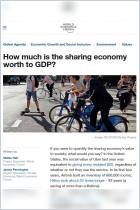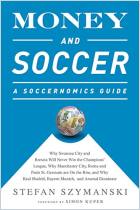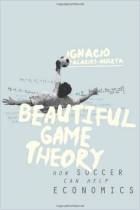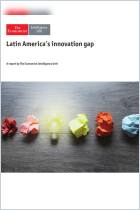
Read or listen offline
1×
Recommendation
Professional football clubs – soccer teams in American parlance – offer athleticism and entertainment, but they’re also major corporations. Turin football team Juventus made a huge capital investment when it signed Cristiano Ronaldo in July 2018 for €112 million ($130.2 million). Yet, as Stefan Hall of the World Economic Forum explains in this engaging read, the Italian club will have to carefully manage its new asset so that it generates profits both on and off the pitch. getAbstract suggests this quick primer on football economics to soccer fans everywhere.
Take-Aways
About the Author
Stefan Hall is a project and engagement lead for the World Economic Forum’s Information and Entertainment System Initiative.
By the same author
In our Journal
Learners who read this summary also read
Book
Book
Book
Book



















Comment on this summary or Start Discussion